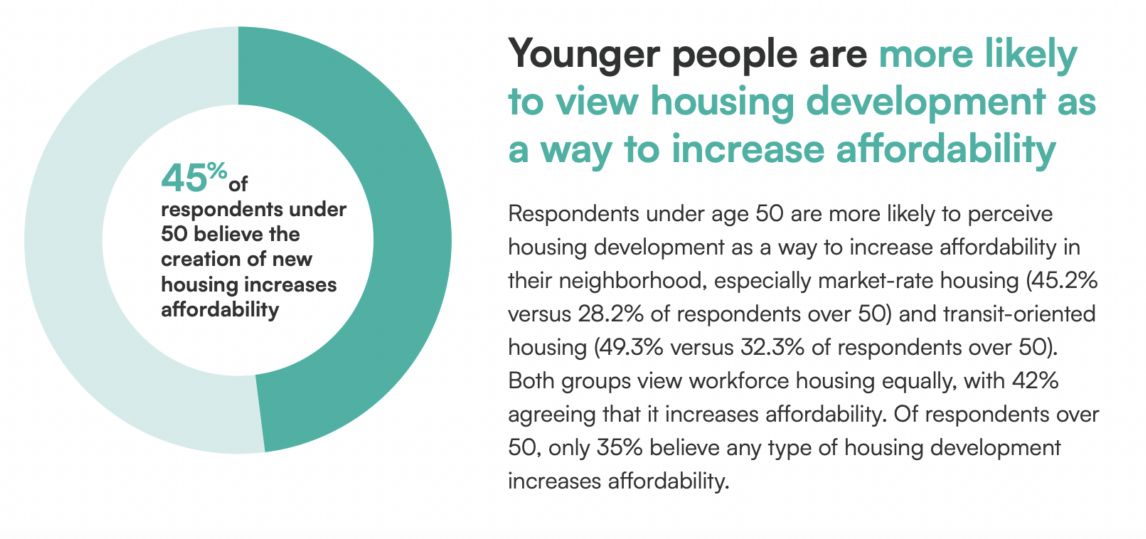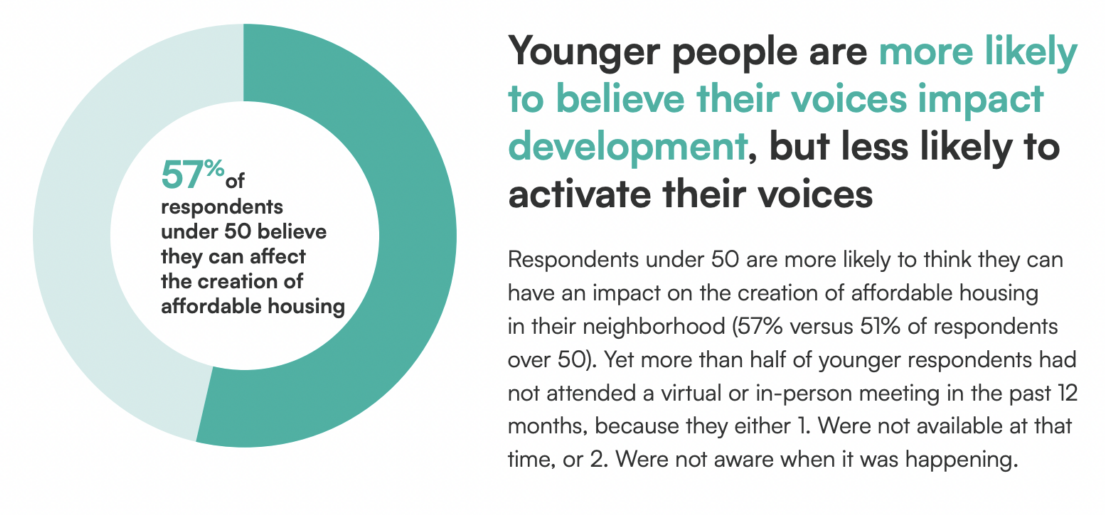Younger people are more likely to support new housing development but less likely to attend public meetings than people over age 50, according to a recent survey by coUrbanize, a technology company that powers community engagement in real estate development and planning.
Half of respondents under 50 believe more transit-oriented housing would increase affordability and 45% believe more market-rate housing would increase affordability in their neighborhood.
coUrbanize survey shows young people support housing development more than those over 50.
By comparison, only 28% of respondents over 50 believe market-rate housing increases affordability, and 32% believe transit-oriented housing increases affordability.
The respondents under 50 are also more likely to believe they can have an impact on the creation of affordable housing than those over 50, but they're less likely to attend a public meeting (half had attended an in-person or virtual meeting in the past year, versus 61% of respondents over 50).
Furthermore, only 10% of total respondents said they get their information about planning and development projects from public meetings. Regardless of whether a meeting was virtual or in-person, 71% of participants did not change their opinions about a new development project or plan after attending a public meeting.
"Planners have long viewed the public meeting as a flawed process that gives disproportionate power to a small group of the community, often homeowners," said Karin Brandt, CEO and Founder of coUrbanize. "However, moving the meetings to Zoom has not been the silver bullet for increasing engagement that many believed it would be at the start of the COVID-19 pandemic."
"It's encouraging to see that people under 50 want to effect change in their communities. But younger people are busy with jobs and families, and don't have the time to take high-bar civic actions. That's where online community engagement comes in by lowering the bar to participation," said Brandt.
She continued, "At coUrbanize, we believe the only way to change engagement outcomes is to bring more people into the process, specifically elevating historically excluded voices."
To read the full report, including more data, charts, and methodology, click here.

 theMReport.com Your trusted source for mortgage banking news
theMReport.com Your trusted source for mortgage banking news










